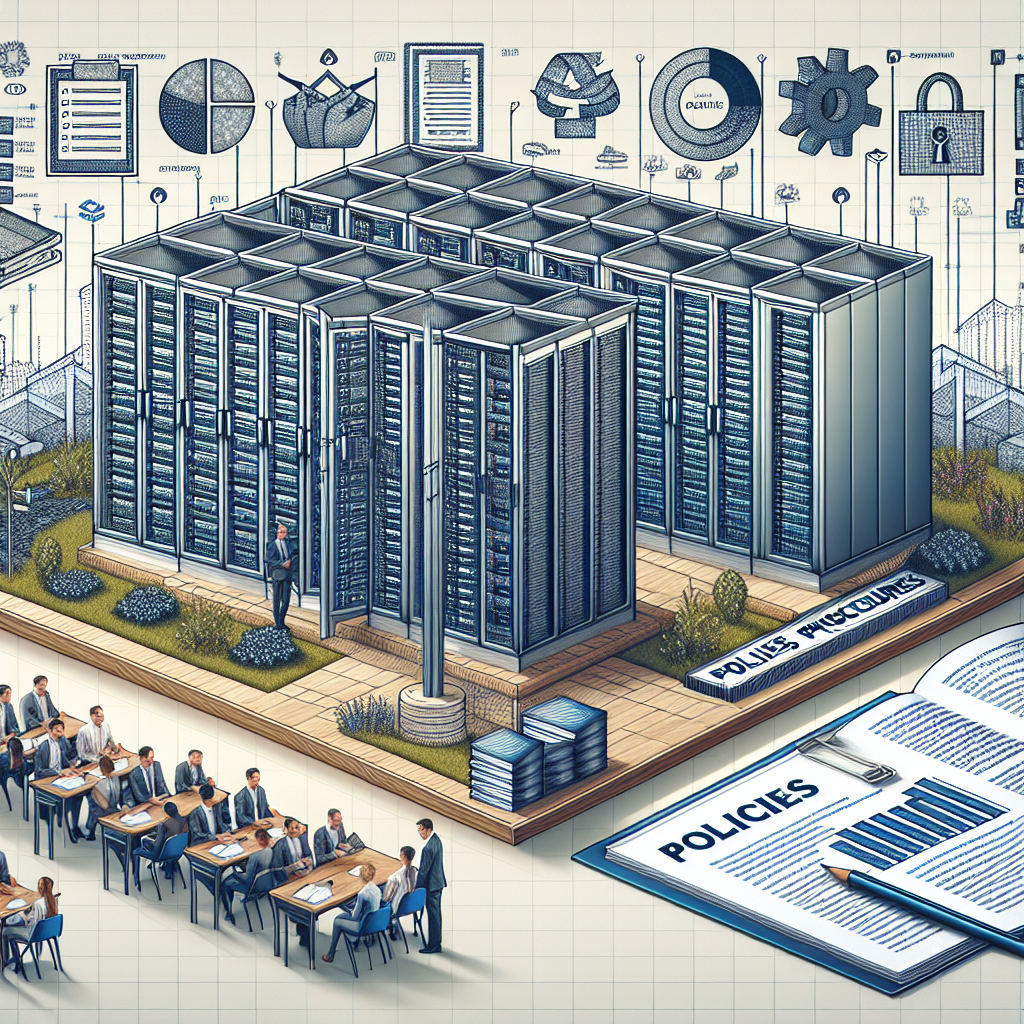Your cart is currently empty!
Data Center Compliance: The Role of Policies, Procedures, and Training

In today’s interconnected world, data centers play a crucial role in storing, managing, and processing vast amounts of data. With the rise of cyber threats and regulations such as GDPR and HIPAA, data center compliance has become more important than ever. Data center compliance refers to the adherence to regulations, standards, and best practices to ensure the security and privacy of data stored in a data center.
One of the key components of data center compliance is the implementation of policies, procedures, and training. These three elements work together to create a framework that guides employees on how to handle data securely and in compliance with regulations.
Policies are the foundation of data center compliance. They outline the rules and guidelines that employees must follow when handling data. For example, a data center may have a policy that requires employees to use encryption when transferring sensitive data. Policies should be clear, concise, and regularly reviewed and updated to reflect changes in regulations or technology.
Procedures are the step-by-step instructions that employees follow to carry out the policies. Procedures provide a roadmap for employees on how to perform tasks securely and in compliance with regulations. For example, a data center may have a procedure for securely disposing of old hard drives or for conducting regular security audits.
Training is essential for ensuring that employees understand and follow the data center’s policies and procedures. Training should be provided regularly to all employees, including new hires and existing staff. Training can cover topics such as data security best practices, how to recognize and report security incidents, and how to handle sensitive data. Training can be delivered through in-person sessions, online courses, or a combination of both.
By implementing robust policies, procedures, and training, data centers can ensure compliance with regulations and protect the security and privacy of data. In addition to reducing the risk of data breaches and regulatory fines, compliance with data center standards can also enhance trust and credibility with customers and partners.
In conclusion, data center compliance is a critical aspect of data security and privacy. By implementing policies, procedures, and training, data centers can create a strong foundation for compliance and ensure the security and privacy of data stored in their facilities. Compliance is not just a legal requirement, but also a best practice that can help data centers build trust with stakeholders and protect their reputation.

Leave a Reply